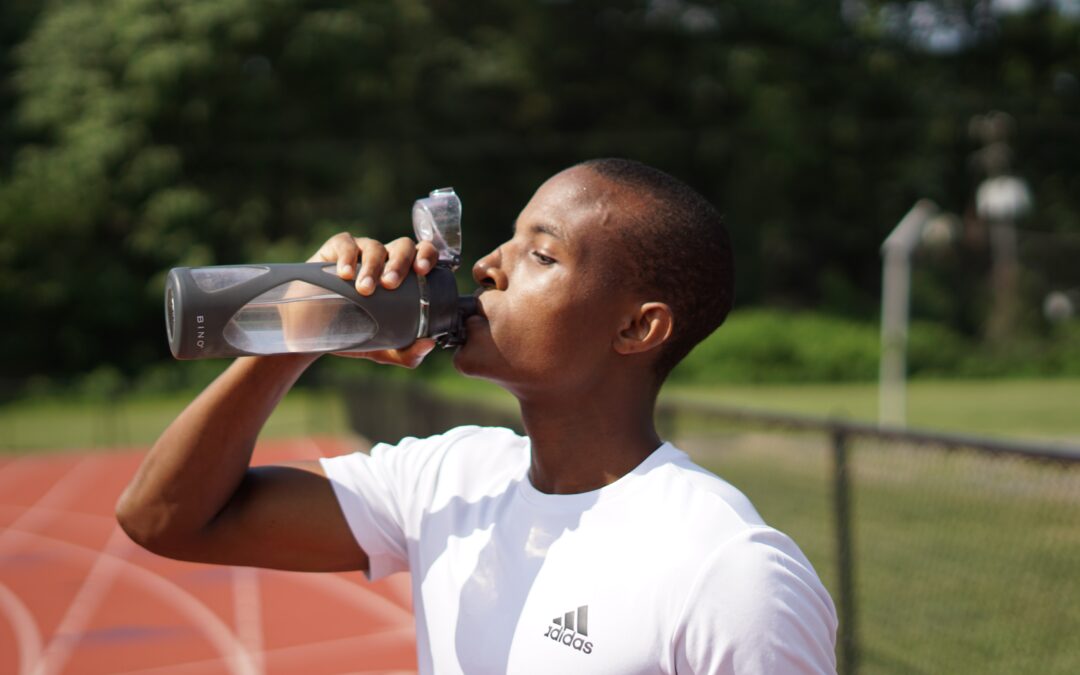Keeping good levels of hydration is one of the most important aspects of our diet. We need water to survive and we would not get far without it. It is required for many bodily functions and regulating temperature with in the body. Many people are falling short of sufficient levels and here is what you need to know about staying hydrated.
What does water do for us?
Water makes up 60% of the human body which a huge amount! Water in the body is essential for transporting blood cells, glucose and oxygen. It also helps remove waste products from the body, lubricate joints, and keeps our skin healthier helping to avoid wrinkles.
We need a sufficient amount of fluid so our body can regulate temperature. In order to lose heat our bodies will lose water through sweat in attempts to cool the body down. Water will evaporate on the surface of the skin to lower temperatures.
How much water do I need?
2L of water each day is recommended for women, where men will require closer to 3L to keep the body functioning at an optimum level. This should be increased If you are exercising or in a hot climate. When our body heats ups we lose a lot of our water through sweat along with electrolytes such as sodium, potassium and magnesium. Replacing water and electrolytes as soon as possible is essential.
For performance
From a performance angle, staying hydrated is crucial when competing in sport or competition. When you sweat you also lose electrolytes from your body including sodium, potassium and magnesium which are important for cell function and energy. They are responsible for distribution and absorption of water in the cells and they are vital for regulating muscle contractions.
This is when dehydration or lack of electrolytes can cause cramp. When re hydrating, you should be replacing these electrolytes as well as water to maintain optimal cell function. Replacing just water alone could dilute the body causing an imbalance in fluid levels. Taking specific electrolyte drinks or hydration tablets can help!
This will also help provide the body with more energy and allow you to train and compete at a higher level.
Signs of dehydration
- Feeling thirsty
- Headaches
- Fatigue
- Dark coloured urine
- Dizziness
- Dry lips, mouth, eyes.
Drinking too much water
Generally speaking, drinking too much water is challenging and something 95% of people don’t need to worry about. However, there are some negative effects that come from drinking too much. Staying hydrated and having too much water by itself can cause sodium levels in the body to fall. Cells in the body and brain take on this fluid and can swell causing brain function disruption. In extreme situations this can lead to hypertension or bradycardia.
Our tips
-
Start the day before anything else with a glass of water.
We are often most dehydrated first thing in the morning so this hugely important to rehydrate to help us wake up, and re energise.
-
Track how much you drink.
You can do this simply by counting the number of glasses of water you have through the day or get yourself a large bottle which you can easily track.
-
Drinking before meal times.
A great hydration tip and also very helpful for weight loss. This can ensure you don’t over eat at meal times by not mistaking thirst for hunger.
WE CAN HELP
We off excellent nutrition advice for both Personal training and EMS training clients. We can help you lose body fat, optimise your training and help you live a healthy sustainable lifestyle.
At Fasttrack Fitness we offer 1-1 and 1-2 personal training sessions from our home studio in Twyford. We also offer Mobile and outdoor training sessions for those who are short on time or love to train outside! To find out more about our Personal Training visit https://www.fasttrackfitness.net/personal-training/ To follow us on Facebook go to https://www.facebook.com/FastTrackEMS


